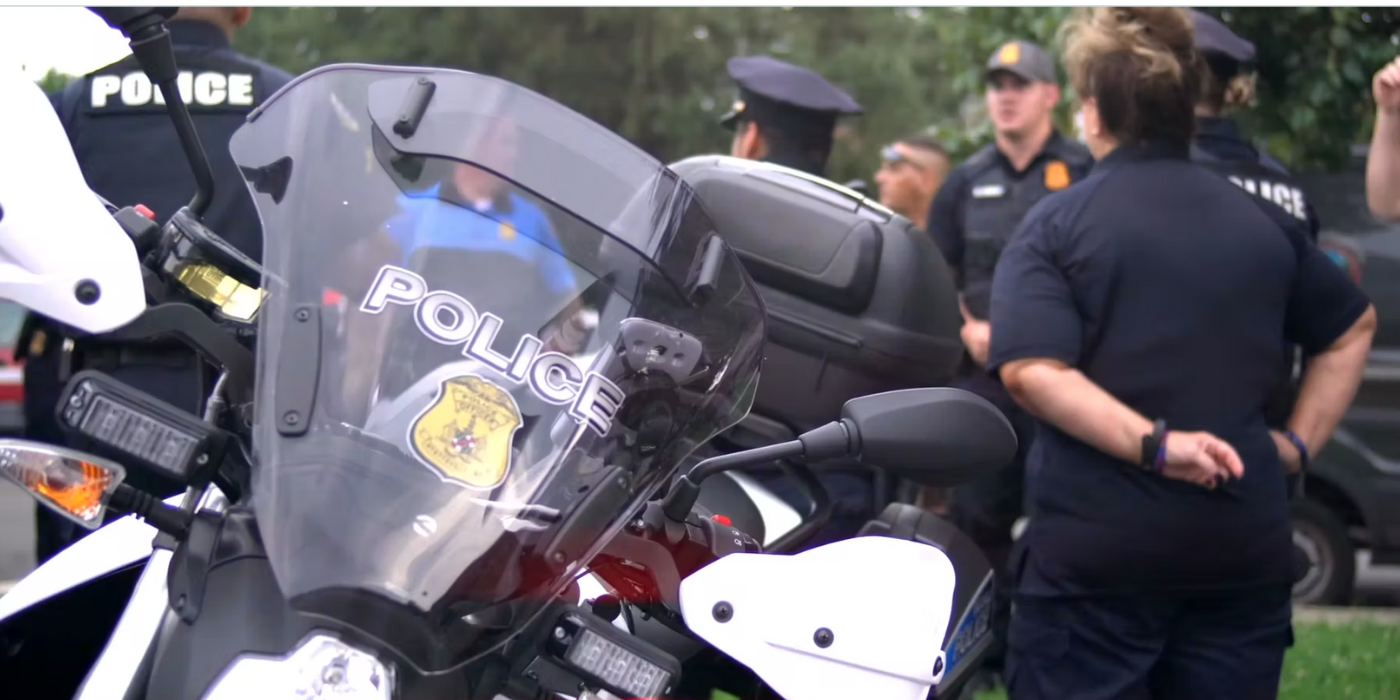
First responders - including police officers and 911 operators - suffer from high rates of mental health issues and suicide across the country, but few departments have internal programs to nurture their workplace mental health. To address this disparity, the Hyattsville City Police Department (HCPD), in collaboration with the SPH’s Department of Health Policy and Management, launched the Mental Wellness Check In (MWCI). This program aims to provide a mechanism for these first responders to process work-related trauma and maintain their own mental health. The MWCI requires HCPD employees to attend a quarterly, subsidized therapy appointment with a licensed practitioner to address work-related stressors and mental health struggles. These mental health resources are also being offered to the neighboring Brentwood Police Department through funding from the City of Hyattsville and a Department of Justice grant.
Adrienne Augustus, MPA, HCPD Media Relations and Mental Health Manager, proposed the MWCI to the City of Hyattsville and currently oversees the initiative. Dr. Melvin Seale, DHSc, assistant professor and graduate director for the Department of Health Policy and Management, lent his health care management expertise to create the infrastructure that manages large volumes of sensitive information. Dr. Seale also took advantage of the MWCI project to provide a high-impact learning opportunity for Master of Public Health students. During the 2021-2022 academic school year, two health policy and management graduate students joined the MWCI administration team as interns: Sebastian Godoy, MPH ’22 and Emily McAllister, MPH ’22 .
As MWCI interns, Mr. Godoy and Ms. McCallister worked behind the scenes to collect anonymous quantitative and qualitative data - in the forms of pre- and post-therapy session surveys - to gauge the effectiveness of the MWCI. Preliminary results, which both Mr. Godoy and Ms. Callister used to complete their final capstone projects, show that the majority of first responders want to learn more about nurturing their workplace mental health and have positive views of the MWCI.
“By serving as a MWCI intern, I came to better understand the unique stressors first responders face and the cultural norms that hinder so many from talking about their workplace mental health struggles,” Mr. Godoy said. “The MWCI is actively working to change the conversation about mental health in police departments. It is the first mental health project of its kind and has the potential to impact all police departments across the state of Maryland.”